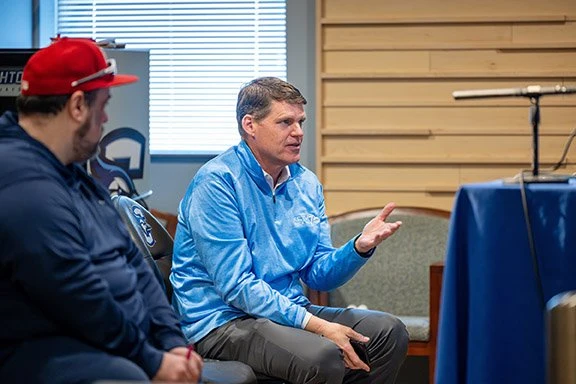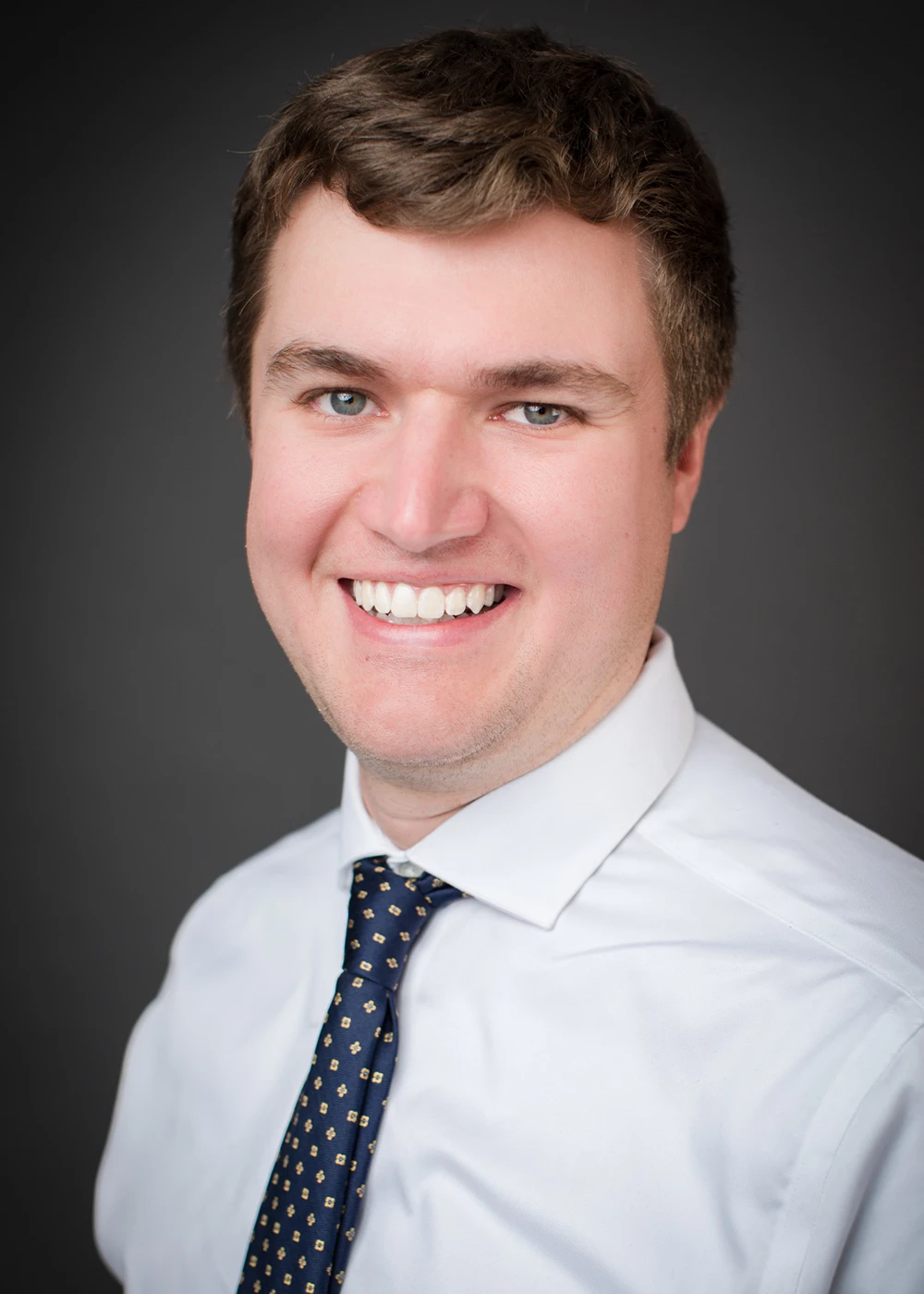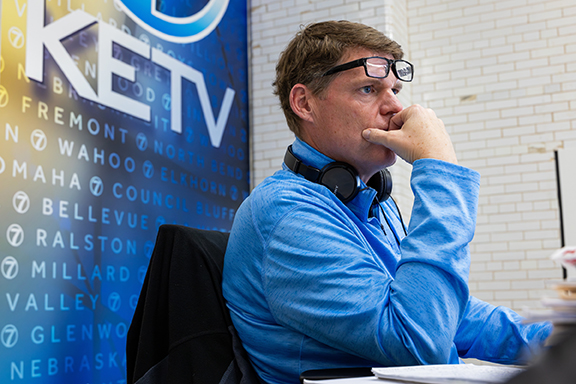
Today's Medicine
‘The care I needed’: KETV’s Andy Kendeigh credits Methodist for helping him return to action
Published: Dec. 3, 2024On the evening of May 15, Andy Kendeigh opened his Methodist patient portal account while preparing for his next KETV sports segment.
The results were in from an MRI he received earlier that day at Methodist Women’s Hospital, and the summary included the words “discitis osteomyelitis.”
Between the 6 p.m. and 10 p.m. newscasts, Kendeigh decided to Google “osteomyelitis.” He didn’t like what he saw.

“There were mortality rates connected to it,” he said.
With his mind swirling about the diagnosis, the veteran sportscaster made it through the 10 p.m. show, but he wasn’t completely focused. And little did he know that that night would be the last one he’d work for the foreseeable future.
Persistent pain
Kendeigh, 55, has struggled with back pain for most of his adult life.
“I’ve had a herniated disk,” he said. “I’ve had procedures and injections. But nothing compared to the pain I experienced back in April.”
After a family event in Lincoln for his oldest daughter, he couldn’t comfortably sit in a chair and had to call it a night before the event ended. He woke up the next day hardly able to walk or even stand.
The pain persisted, and by May, his colleagues at KETV encouraged him to get checked out because he could barely make his way around the newsroom and struggled to put on his suit jacket.
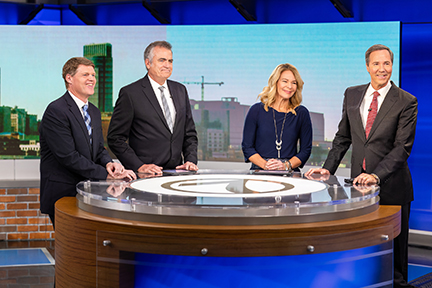
After a couple of visits to Methodist Physicians Clinic, his primary care provider, Jared Pehrson, MD, ordered an MRI.
Unfortunate timing
The day following the MRI, Kendeigh called Dr. Pehrson, who promptly told him that he needed to see a neurosurgeon as soon as possible because things didn’t look good.
Within a couple of hours, Kendeigh and his wife met with Stephen Doran, MD, at MD West ONE. Dr. Doran confirmed that Kendeigh had osteomyelitis – an infection in a bone – in his spine, and he needed to be admitted to the hospital as soon as possible.
“If left untreated, some types of bacteria can continue to spread and progress into an abscess, compressing nerves,” Dr. Doran said. “So, you could end up with neurological problems that can be quite serious and not necessarily reversable if it goes too far. Andy, fortunately, didn’t have an abscess, and his nerve function was fine, but the possibility of it progressing rapidly needed to be taken into consideration.”
The timing of the diagnosis couldn’t be any worse. Kendeigh’s middle daughter was set to graduate from Westside High School in just a few days, and many family members were coming into town to celebrate.
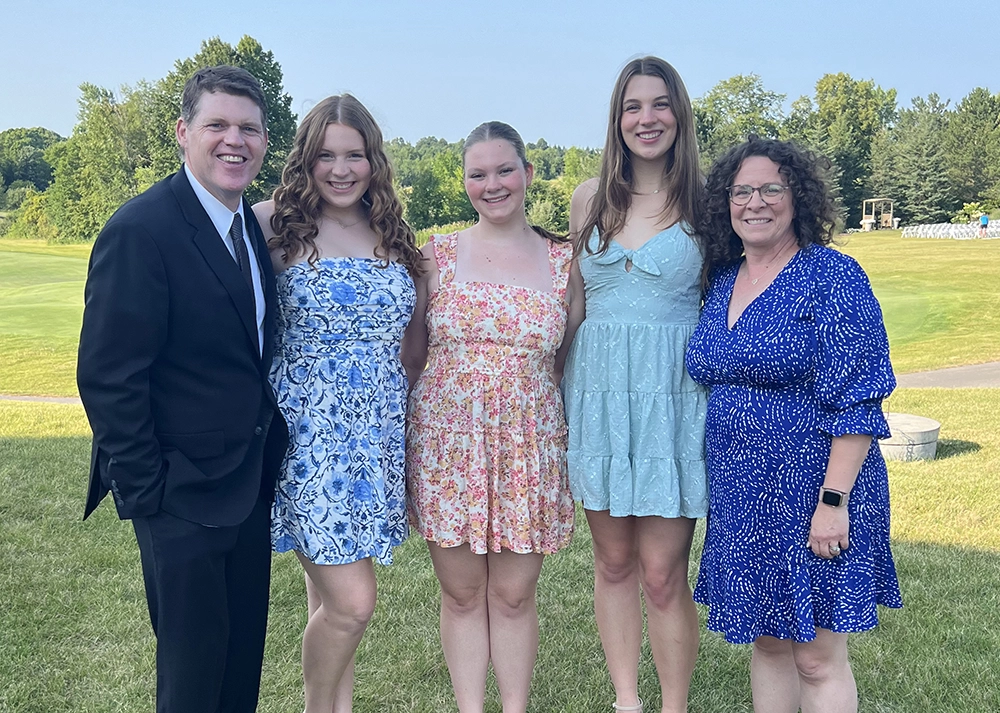
Kendeigh asked Dr. Doran if he could wait until Monday to be admitted, but the neurosurgeon told him that he didn’t know how bad things could get if they waited.
Understanding the urgency of the situation, Kendeigh and his wife took the short drive straight from Dr. Doran’s office to Methodist Hospital.
“I was pretty alarmed on the trip from the doctor’s office to the hospital. I just didn’t know what to think,” Kendeigh said. “But luckily, once I got settled in and admitted, I took a deep breath and knew that I was in good hands.”
At the hospital
During the first 24 hours at the hospital, Kendeigh met multiple doctors and nurses, and he underwent various testing and imaging as his care team worked to identify the cause and severity of his infection.
After Kendeigh shared his story with hospital medicine physician Brian Hollis, MD, and nurse practitioner Kelsey Kelley, APRN, Dr. Hollis and Kelley wanted to find a way to let Kendeigh experience part of his daughter’s graduation weekend, even if he wouldn’t be ready for discharge.
“I could certainly empathize with his situation,” said Dr. Hollis, who has two young daughters of his own. “And I tried to do what I could so he wouldn’t miss out on an important event.”
The next day, Dr. Hollis received approval. He and Kelley delivered the good news that Kendeigh could leave for an hour either Saturday for the graduation party or Sunday for the ceremony.
“I can’t tell you how much that meant to me and my family,” Kendeigh said.
‘Awesome care’
Test results revealed that Kendeigh had contracted a strep infection that made its way into his bloodstream and his spine.
“Strep starts in the mouth, and it normally does get into the blood – as simple as chewing food or gum – but usually your body is able to fight it off,” said Sasan Gholami, MD, a Methodist infectious disease physician. “But sometimes the strep can find a weak spot in your body.”
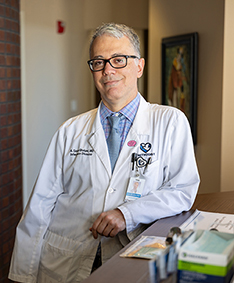
Kendeigh received medication every four to six hours at the hospital. He recalls being in “pretty rough shape” the first couple of days but credits his care team for helping him through the discomfort.
“The thing I appreciated the most was that I could ask the doctors or nurses anything,” he said. “They were as forthcoming as they could be, and that was reassuring to me because I had a ton of questions. I don’t know this stuff. I tell you when the Huskers win and lose. I have no idea what’s going on with a bad back or back infection, so it was nice to have real professionals in charge of that.”
He added: “It was pretty comforting knowing that we had awesome care. That was one less thing to worry about on a weird, monumental weekend that could’ve turned out much worse.”
Kendeigh ended up spending five days and four nights in the hospital before being discharged with a peripherally inserted central catheter (PICC) in his arm so he could administer at-home antibiotics.
Long road back
Despite hoping he’d be back to cover the Men’s College World Series in June, Kendeigh spent eight weeks completing an at-home care regimen and didn’t return to KETV until mid-July.
He thought he’d ease his way back into working, but his second week back, he was heading to Indianapolis for Big Ten Football Media Days.
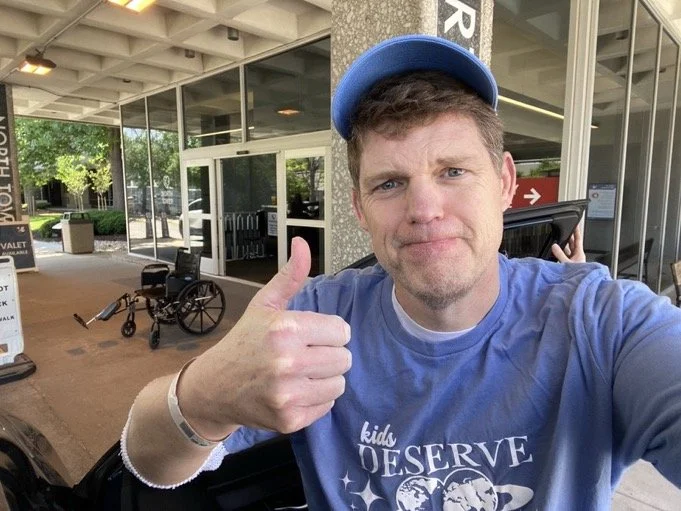
“It was actually a good test to see if I was on my way back,” Kendeigh said. “And I passed, so it was a good indicator that I’m on my way now, and it’s going to be OK.”
He felt about 80% back to normal in mid-August, just before the fall sports seasons started up.
During the second week of September, Kendeigh received good news from a follow-up MRI and was given the green light to start physical therapy.
“It’s been a long road. Thankfully I’m on the right path, and I’m getting better every day,” he said. “One of my doctors said, ‘You’ll improve 1% every day,’ and I thought he was crazy. 1%? I heal quicker than that. Well, it’s more like 0.8% because it’s been a slow go. But thankfully I got the care I needed, and I’m continuing to do the right things. Hopefully I’ll be 100% in no time.”
